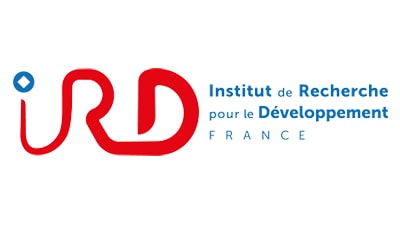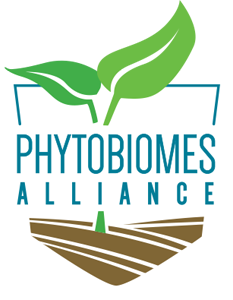
French National Research Institute for Sustainable Development Joins International Phytobiomes Alliance
The International Alliance for Phytobiomes Research (Phytobiomes Alliance) is pleased to announce that the French National Research Institute for Sustainable Development (IRD-France) has joined the organization as a sponsoring partner.
The Phytobiomes Alliance is an international, nonprofit consortium of academic institutions, private companies, and government agencies. Launched in 2016, it aims at building a foundation for exploitation of the phytobiome for food security.
“Phytobiome” relates to the whole system in which a plant grows, enabling a holistic view of the production of crops, trees, and grasslands. It includes the plant itself, all micro- and macro-organisms living in, on, or around the plant – such as microbes, animals, insects, and other plants – as well as the environment, which includes soil, air, water and climate.
The IRD, a key French player on the international development agenda, is an internationally recognized multidisciplinary organization working primarily in partnership with Mediterranean and inter-tropical countries. Researchers and engineers of the IRD scientific department ECOBIO (Ecology, biodiversity and functioning of the continental ecosystems) will be leading collaborative efforts with the Alliance.
“Joining the Phytobiomes Consortium is a great opportunity that will contribute to build an interdisciplinary and global workforce to address knowledge and technological gaps for a better and sustainable agriculture especially in inter-tropical regions where we are working in close collaboration with our partners” says Valérie Verdier, head of IRD ECOBIO department.
Valérie Verdier will represent IRD on the Alliance Coordinating Committee. This committee identifies research, resource and technology gaps, establishes priorities, and develops strategic plans to achieve Alliance goals.
“IRD brings amazing research expertise and a long history of international presence and collaboration, particularly in the developing world, to the International Phytobiomes Alliance,” says Jan Leach, Phytobiomes Alliance Board member. “Their participation adds an invaluable piece to the Alliance’s core.”
Over the next decades, the United Nations predicts that the world population will grow by 83 million every year, to reach 9.8 billion by 2050 and 11.2 billion by 2100. Producing enough food for this growing population—in a sustainable way, while preserving biodiversity and natural resources—requires a major paradigm shift in agricultural production of food, feed and fiber. By establishing a foundation of knowledge on how phytobiome components interact and affect each other, the Phytobiomes Alliance aims at addressing these challenges.
By 2050, the Alliance envisions that all farmers, ranchers, growers and foresters will have the ability to use predictive and prescriptive analytics based on geophysical and biological conditions for determining the best combination of crops, management practices, and inputs for a specific field in a given year.
About the Phytobiomes Alliance
The Phytobiomes Alliance is an international, nonprofit alliance of industry, academic, and governmental partners created in 2016. The goal of the Alliance is to understand, predict and control emergent phenotypes for sustainable production of food, feed and fiber on any given farm. The Phytobiomes Alliance is sponsored by Bayer CropScience, Eversole Associates, Monsanto, The Climate Corporation, the French National Institute for Agricultural Research (INRA), Indigo Agriculture, the Noble Research Institute, NewLeaf Symbiotics, the French National Research Institute for Sustainable Development (IRD), Colorado State University, the University of Maryland, Penn State College of Agricultural Sciences, the American Phytopathological Society, the University of Nebraska-Lincoln, and BioConsortia.
About the French National Research Institute for Sustainable Development (IRD-France)
A key stakeholder in research for development The French National Research Institute for Sustainable Development (IRD), an internationally recognized multidisciplinary organization working primarily in partnership with Mediterranean and inter-tropical countries, is a French public establishment under the joint authority of the French Ministry of Higher Education and Research and the Ministry of Foreign Affairs and International Development.
Via its network and presence in fifty or so countries, it takes an original approach to research, expertise, training and knowledge-sharing, to the benefit of countries and regions that make science and innovation key drivers in their development.
- A rich community of over 7,000 people including 2019 IRD agents (820 IRD researchers and 1,228 IRD engineers and technicians)
- 35% of agents working outside mainland France
- 65 joint research units under IRD co-supervision
- 4000 publications per year in the Web of science
About the Ecology, Biodiversity and Functioning of the Continental Ecosystems (ECOBIO) scientific department at IRD
The ECOBIO department includes 13 research units and 286 researchers and engineers in Agrosciences.The main scientific areas covered are:
- Ecology, evolution, dynamics and functioning of terrestrial and aquatic ecosystems (Mediterranean and tropical regions) and living resources;
- Role of the environments and related organisms and of their interaction with each other in the functioning, adaptation, resilience of the ecosystems and preservation of the diversity facing global and demographic changes;
- Plant adaptation to abiotic and biotic stress and applications toward a sustainable food production.
###
Contacts
Isabelle Caugant
Communications Director
International Alliance for Phytobiomes Research
+1 916-840-8801
caugant@eversoleassociates.com
Twitter: @phytobiomes
Facebook: Phytobiomes Alliance
Cristelle Duos
Press Officer
French National Research Institute for Sustainable Development (IRD)
+33 491-999-487
presse@ird.fr
Twitter: @ird_fr
Facebook: IRD.fr
Links
